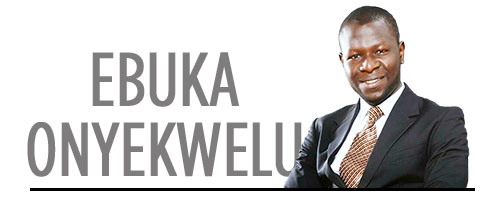“Clearly, post-2023 election fall-out might end up being a Southern Nigeria’s problem or even a Southeast problem” —Ebuka Onyekwelu
Politicians are now effectively in the final push in their bid to emerge victorious at the polls, on February 25th. So in about 18 days, Nigeria would have a President-Elect and elected members of the National Assembly. Perhaps, at this point, there is little or nothing that can be said to change the minds of people, about whom to vote or not vote. Although money, among many other factors, might still play the final role in who emerges. As part of the build-up to the election, the Electoral umpire, INEC, has assured of its readiness to conduct a free and credible election. Evidently, the heat of this election is domiciled in Southern Nigeria, and for good reasons.

But beyond those, what is Nigeria’s government plan for post-election crisis management? Given the nature of political campaigns by major political parties, the level of discontent, growing awareness and the impatience of the teeming youth population, as well as various forms of social unrest like agitations and clamor for secession; it would be difficult to not see that no matter how well the election is conducted, and no matter who wins, chances are that the country might experience unrest and out of sustained anger and frustration, the unrest might linger and become a major distraction to the incoming government.
Of specific reference is the Southeast geo-political zone, now gradually recovering from the cycle of violence and indiscriminate killings that has enveloped the zone since around mid-2020. Obvious government failures in planning for the youth population became a ready tool in the hands of some anarchists. Even in the North, the almajiri system has created generations of people who have been abandoned by humanity but who owe themselves the obligation to live. In all of these instances, the government and its officials at all levels are targeted by these angry and displaced citizens. Real or imagined, the assumption is that the problem in Nigeria is caused by the government and its officials. Hence, the government, its agencies, and its departments are not spared in any expression of this aggression. In consequence, officials of government are also grouped in the category of those to be visited with the most excruciating pain.
Worst still, it is in the nature of political contests for only one winner to emerge in any election.
By and large, there is only a little room left to doubt the expanding class war, which is the foundation of the renewed agitation in Southeast, and it is only conceivable that post-2023 General Election might just escalate the already ugly situation. Worst still, it is in the nature of political contests for only one winner to emerge in any election.
The coming Presidential Election is most likely to produce Bola Tinubu of APC, Atiku Abubakar of PDP, or Peter Obi of the Labour Party, as the next President of Nigeria, in that order. Even more profound is the fact that the power shift from the North of Nigeria to the South of Nigeria, may not sufficiently wither the pressure arising in the aftermath of the election. In other words, of the three top contenders, irrespective of who wins, fear of escalated protest is still alive. The emergence of Bola Tinubu might look like a win for Southern Nigeria, but there is hardly any serious importance attached to that identity by Southern Nigerians, themselves. An average Southern Nigerian is an Esan man, Calabar man, Ijaw man, Igbo man, Ikwerre man, Yoruba man, etc, and not a “Southern Nigerian.” Therefore, based on this pre-existing identity, a win by Peter Obi might be conceived of as an “Igbo” victory, by none but Southern Nigerians.
More so, how then does Southeast manage possible issues arising from the election in the event that Peter Obi fails to make it? How does Southern Nigeria manage itself and its people, in the event that a Southern Nigerian emerges winner at the polls?
State governments across the country, particularly in Southern Nigeria, where there is the likelihood of post-election tension or turmoil, must devise means to keep thousands of able-bodied unemployed youths meaningfully engaged. Already, signs of possible post-election violence can be seen in the recent aggression meted out to banks in parts of Southern Nigeria, over the recent currency crisis. Clearly, post-2023 election fall-out might end up being a Southern Nigeria’s problem or even a Southeast problem.
Significantly, the North is approaching the election differently because the incumbent is from Northern Nigeria. Besides, North has a vice presidential slot in both APC and LP, while Atiku is on top of the ticket in PDP. Although APC Northern Governors are all in favor of the power shift to Southern Nigeria and this sentiment is strong. So, the usual post-election violence in Northern Nigeria might shift to the other side of the country, if the risks, expectations, and disappointments that accompany winning or losing an election are not well managed.
Therefore, Southern Nigeria might become problematic and make governance difficult for the new government. For now, there is still a little more time to envision the possible crisis and make enough provision to stop or at least contain any turmoil arising in the aftermath of the 2023 General Election.
- World Immunization Week: Medical Practitioners, Others, Speak on the Benefits of Immunization - April 25, 2024
- Insecurity in Anambra: “We must focus our gaze within” – Uzu Okagbue - April 25, 2024
- Anambra Schoolgirls Win National ICT Competition - April 25, 2024

